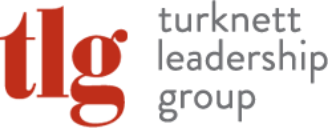
By Jonathan Palombo
Marketing Manager, TLGMeet Jennifer Torres! Jennifer is an organizational leadership coach, curriculum designer, and author with years of experience of providing executive coaching, executive selection, leadership development, and training to organizations and leaders. We caught up with Jennifer to learn a little bit more about her background, her work with workplace equilibrium, and the pivotal role gratitude can play in the workplace.
Q: Tell us about your background! What led you into leadership development?
I have always had a passion for helping people live their best lives both personally and professionally. My background in Counseling, Human Resources, College Instruction, and Executive Coaching, have served me very well in support of leadership development, but going through the institutional accreditation process for my coach training school has taken that to a new level. I love supporting leaders and the organizations they work for to adopt 1) Coaching as a leadership skill and 2) Coaching for expanded organizational capacity.
Q: What kind of impact do you hope to leave on your clients?
Personal transformation and expanded leadership capacity is what coaching is really about. I love partnering with clients who are experiencing greater joy in their lives and work because they have made some internal shifts that empower them to be more effective. What clients often tell me is something along the lines of expecting they would upgrade their leadership toolkit through coaching but discovering a whole new side to themselves that they had not been fully leveraging. The bottom-line impact I want for my clients is for them to realize greater joy, fulfillment, and effectiveness in their personal and professional lives.
Q: Tell us about Workplace Equilibrium and the Center for Equilibrium. What does it mean to master equilibrium?
Equilibrium, simply stated, is holistic wellbeing. Workplace Equilibrium is achieved through establishing, nurturing, and sustaining a culture of equilibrium that is modeled at the senior leadership level and implemented enterprise wide. Mastering Equilibrium is really about developing the capacity to maintain our most effective internal state even in the face of external challenges that appear insurmountable. The Six Disciplines are the keys that unlock human potential to mastering equilibrium.
Q: What is the role of gratitude in building, maintaining, and restoring equilibrium in the workplace?
This is a great question! Gratitude is a cornerstone of equilibrium and is a wonderful example of how something that is very simple can bring transformative results. Equilibrium is built, maintained, and restored by way of the Six Disciplines. The Six Disciplines cover:
1. Affect Equilibrium 2. Body Equilibrium 3. Cognitive Equilibrium 4. Spiritual Equilibrium 5. Acceptance Equilibrium 6. Control Equilibrium
Our lives are of course not compartmentalized and each of the six disciplines influences the others. So when we establish a practice of gratitude, we are gaining systemic benefits of holistic integration and we are improving equilibrium across all Six Disciplines. The impact is experienced in our emotions, body, mind, and spirit. Some of the latest research coming out of UCLA’s Mindfulness Research Center claims that gratitude actually changes the molecular structure of the brain. It keeps gray matter functioning, supports our central nervous system, helps us stay peaceful and less reactive, and people who have developed the habit of practicing gratitude are generally happier, healthier, and more resilient. That is the short answer to a very big topic and a fundamental element of Equilibrium.
Just as individuals need to manage personal Equilibrium to experience holistic wellbeing, organizations need to ensure leadership promotes the right climate, culture, and structures that foster workplace equilibrium.
Q: Tell us about TLG’s partnership with Envision Evolution. How is this partnership benefiting you as an executive coach and what does it mean to you?
I am so honored to be associated with such a high-integrity group as TLG! I have great respect for the leadership team and love having the opportunity to support TLG initiatives. It is beneficial to me to have trustworthy advisors and colleagues that I know can help provide an extra layer of quality assurance. It feels wonderful knowing there is a team of brilliant, dedicated people I can turn to for additional insights about an approach I might be taking, and know that I will get honest, direct feedback that is actionable and always in the best interest of clients.
Q: If you could give just one leadership tip to someone, what would it be?
If you have not made the shift from “boss” to “coach” in your leadership approach, consider doing that sooner rather than later! According to a recent Gallup poll, what employees need most to feel valued and engaged is for their direct manager to use a coach approach to their leadership style. What people want most of all is a leader, not a boss.

